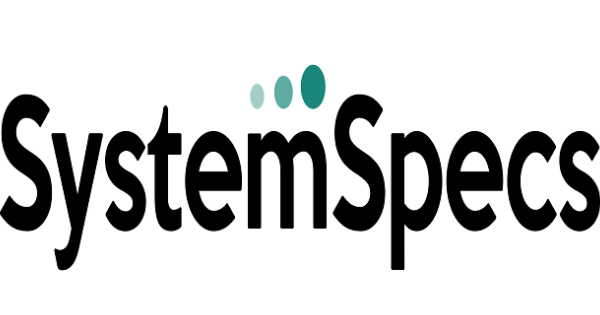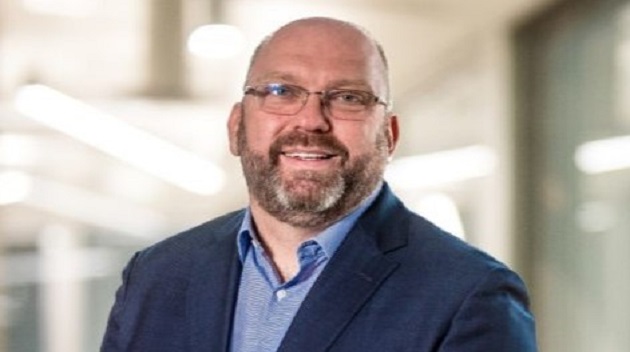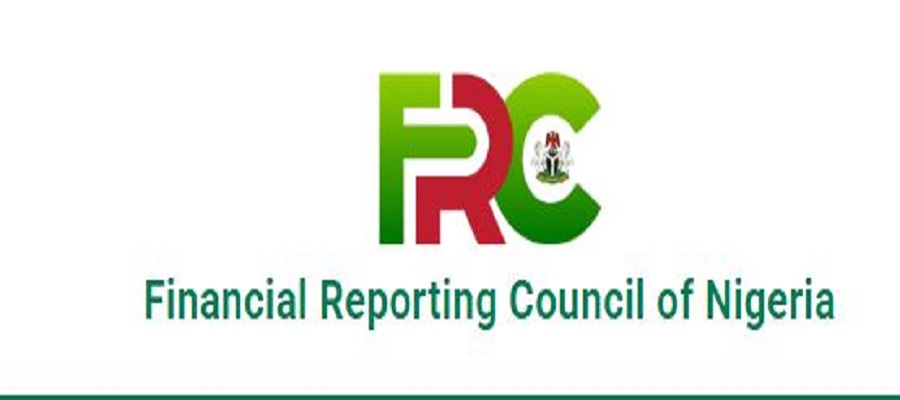General News
SystemSpecs Makes Case for Broadband Penetration to Deepen Financial Inclusion

SystemSpecs, has supported calls by stakeholders in Nigeria’s business ecosystem for increased broadband penetration to deepen financial inclusion as a means of social and economic transformation in the country.

This was affirmed recently by ‘Deremi Atanda, SystemSpecs’ executive director, when he served as a speaker at the annual Bullion Lecture, organised by the Centre for Financial Journalism (CFJ), which held both virtually and physically in Lagos.
According to a 2018 World Bank report, financial inclusion means that individuals and businesses have access to useful and affordable financial products and services that meet their needs, including payments, savings and credit in a responsible and sustainable way.
A Boston Consulting Group (BCG) report had stated that a one per cent increase in financial inclusion increases real Gross Domestic Product (GDP) per capita by 3.6 per cent.
“We must continue to focus on those things we regard as national issues. If we say financial inclusion is an opportunity to bring the economically disadvantaged persons into the economic network that can improve their lives, then it should be at the forefront of all we do,” Atanda said.
He said although the Central bank of Nigeria, the Nigerian Communications Commission and other relevant government agencies have done a lot in improving financial inclusion, there was still a lot to be done.
“How do we leverage technology to make sure that disadvantaged Nigerians can have their quality of lives improved and a sense of belonging as Nigerians? What are the strategies to ensure that the average Nigerian can be economically empowered?” he asked.
Strongly recommending that stakeholders begin to more actively consider the country’s burgeoning fintech community as a key contributor to the attainment of the desired financial inclusion goals, he said the digital economy is an enabler of social transformation and economic empowerment.
Further in his comments, Atanda analysed the interception between broadband penetration and financial inclusion as well as the consequence on socio-economic improvement, saying “As we deepen the collaboration between stakeholders within and outside government, we need to know what has worked what is not working and what needs to be done differently.”
“I think there is still a lot more to be done. The engagement of regulators and non-governmental stakeholders should be very clear and be continuously progressive,” Atanda added.
According to Professor Umar Danbatta, executive vice chairman of the Nigerian Communications Commission (NCC) and keynote speaker at the event, in Nigeria, only 58.5 per cent of the adult population were financially included, participating in the formal economy as of 2016. Nigeria had a target of 80 percent financial inclusion by the end of 2020.
The NCC boss highlighted a number of initiatives being implemented by the commission to deepen the frontiers of digital access to financial inclusion. These include pervasive broadband drive, unstructured supplementary service data (USSD) integration, SIM registration and subscriber database audit, new numbering plan, MoU with the Central bank of Nigeria (CBN) on mobile money, collaboration with other institutions, and addressing risks associated with digital financial services.
Another speaker at the event, Chizor Malize, CEO of the Financial Institutions Training Centre (FITC), spoke about the importance of building digital infrastructure in order to grow the economy. She analysed how technology and telecommunications infrastructure have deepened development in the society.
“The importance of digital connectivity is seen in areas where government, individuals, organisations, communities and other stakeholders are connected in a way that engagement and interaction are easier,” Malize said.
General News
NCS to Launch Electronic System for Cash Declarations at Airports

Nigeria Customs Service (NCS) is set to introduce an electronic declaration system to streamline and enhance compliance for travelers carrying cash into or out of Nigeria.

Speaking in an interview with the News Agency of Nigeria (NAN) in Abuja, Abdullahi Maiwada, NCS spokesperson, emphasized that the initiative aligns with efforts to strengthen Nigeria’s anti-money laundering framework and reinforce financial regulations.
“The Nigeria Customs Service (NCS) has announced the deployment of an Electronic-Currency (E-Currency) declaration form as part of its anti-money laundering measures for travelers carrying cash into and out of Nigeria,” NAN reported. The system will require travelers carrying amounts exceeding the legal threshold to declare them before arrival or departure.
Maiwada further explained the process, stating, “We have developed a system where, even before leaving your point of origin, you can scan a QR code, access the form, fill it out, and we will be able to see it from here.”
He noted that the initiative, set for rollout soon, will enhance monitoring and facilitate information sharing with relevant authorities.
Under the Anti-Money Laundering (Prevention and Prohibition) Act 2022 and the NCS Act 2023, travelers carrying over $10,000 (about N15.4 million) or its equivalent in negotiable instruments must declare the funds to Customs authorities.
To boost awareness, the NCS is working with airline operators to inform travelers through onboard announcements and plans to reinstate signage at airports and border points in English and French.
The move comes as part of broader efforts to tighten financial controls following a recent case at the Murtala Muhammed International Airport (MMIA), where Customs officials seized $578,000 from a passenger attempting to evade currency declaration regulations.
General News
Aquaterra Energy Secures Multi-million-dollar well Intervention Contract with Intrepid Energy in Nigeria

Aquaterra Energy, a leader in offshore engineering solutions, has secured a multi-million-dollar, multi-year contract with Intrepid Energy Limited (IEL) to deliver a bespoke subsea well intervention equipment package for a project in Nigeria.

Aquaterra Energy’s turnkey well access package will enable IEL to conduct intervention operations across multiple mature oil wells in the region, supporting enhanced reservoir production.
The contract includes the supply of a complete seabed-to-surface intervention system and package, spanning from the subsea tree to surface intervention equipment.
Key components include Aquaterra Energy’s TRT tieback tooling, which provides production bore and annular access, a lightweight well pressure control system, and an ISO 13628-7 qualified open water intervention riser with an integrated tensioning system. In addition to equipment provision, Aquaterra Energy will also deliver ongoing offshore engineering support throughout the project.
The 7- 3/8” lightweight well access solution, has been specifically engineered for deployment from jack-ups and lift boats. This innovative approach offers a cost-effective and operationally efficient alternative to floating vessels, reducing intervention costs while maintaining high safety and performance standards.
Andrew McDowell, Delivery Director at Aquaterra Energy comments: “Our expertise in offshore engineering allows us to develop tailored intervention solutions that address the operational challenges of subsea well access.
This system has been engineered for efficiency, ease of deployment, and safety, helping IEL optimise intervention activities across Nigeria while reducing costs. By delivering a complete, integrated package, we are simplifying complex operations and enabling operators to maximise production potential.”
Engr Seun Alonge, CEO at Intrepid Energy Limited adds: “Working with Aquaterra Energy marks a significant step forward for our intervention operations in Nigeria. Their specialised technology enhances our ability to execute intervention programmes efficiently, maximising performance across our assets.
By combining Aquaterra’s technical expertise with our deep understanding of the local operating environment, we’re confident this collaboration will enhance production outcomes and create lasting value for our operations in the region.”
The project is set to support intervention operations over multiple years, with Aquaterra Energy providing ongoing technical expertise, with a dedicated team of engineers providing ongoing service support throughout the project.
George Morrison, CEO at Aquaterra Energy: “Delivering reliable and efficient well access solutions for shallow water subsea operations is central to how we support offshore operators.
This collaboration with IEL reinforces our commitment to providing cutting-edge engineering solutions that enhance efficiency and reduce operational costs. With West Africa playing an important role in the global energy sector, we’re proud to continue supporting its offshore industry with our expertise and innovative technologies.”
General News
FG Halts Controversial FRC Dues amid Industry Outcry

Federal government has temporarily suspended the controversial annual dues imposed on public interest enterprises by the Financial Reporting Council (FRC) after fierce opposition from businesses.

Jumoke Oduwole, minister, Industry, Trade, and Investment, announced the decision during a Ministerial Consultative Meeting in Abuja on Wednesday.
The move follows mounting pressure from private sector groups, including the Nigeria Employers’ Consultative Association (NECA) and the Manufacturers Association of Nigeria (MAN), who slammed the Financial Reporting Council (Amendment) Act 2023 for burdening companies with excessive fees.
The Act mandates cumulative annual charges for non-listed entities and imposes a harsh 10% monthly penalty on unpaid dues, compounding until full payment, a provision that sparked widespread backlash.
At the meeting, major industry players like NECA, MAN, the Nigerian Association of Chambers of Commerce (NACCIMA), oil producers, and telecom operators warned that the fees would cripple businesses already struggling in a tough economy.
Oduwole clarified the suspension, stating, “The government has decided to direct the Financial Reporting Council to pause in the implementation of the new annual dues. You know that I am a lawyer, and a suspension request by the organised private sector would be in contravention of legislation duly passed by the National Assembly. A pause is an administrative process simply to review, in line with what we discussed today.”
She assured stakeholders that the halt would last no longer than 60 days, with a technical working group—including FRC officials and private sector representatives—set up to reassess the policy.
“We are a listening administration. The private sector has requested a range from three months to an indefinite suspension. We are not going to do that. So, at the most, 60 days is in my estimate. We are going to set up a technical working group comprised of the FRC and the organised private sector who have formally written in, and this will be reviewed,” Oduwole emphasized.

 Telecom2 days ago
Telecom2 days agoAgain, Labour Fumes, Threatens Shutdown of Telcos over Non-Implementation of 15 Percent Tariff Reduction

 News2 days ago
News2 days agoNNPC Ready to Go to Capital Market for IPO- CFIO

 E-Business2 days ago
E-Business2 days agoFG Launches Online Visa Approval Centre

 E-Business2 days ago
E-Business2 days agoQNET Disassociates From Fraudulent Academy in Abuja, Supports EFCC Arrest

 E-Business2 days ago
E-Business2 days agoFirm Discovers Sophisticated Chrome Zero-day Exploit Used in Active Attacks

 E-Business2 days ago
E-Business2 days agoNITDA Partners JICA to Launch Nigeria-Japan Startup Hub

 Telecom1 day ago
Telecom1 day agoIHS Nigeria Hosts Telecom Industry Stakeholders to Discuss Protection of Critical National Infrastructure in Lagos State

 E-Financial2 days ago
E-Financial2 days agoFintech, Remittances Anchor Africa’s Booming Payments System

























